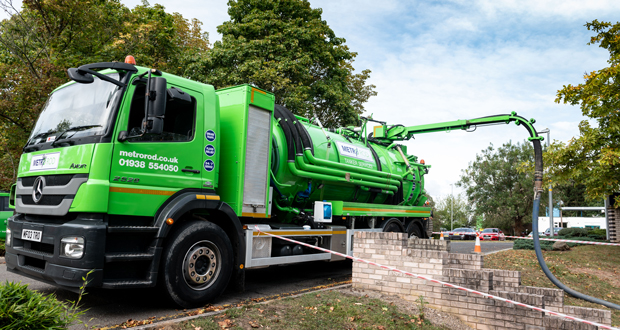Almost two thirds (62 per cent) of manufacturing businesses in the UK are unaware of the steps they should be taking to remedy pollution, leading to widespread concern that their firm might one day be subject to pollution-related penalties.
Research carried out by drainage experts Metro Rod, which has now been released as an industry whitepaper and action plan, identified that 85 per cent of manufacturing businesses are currently concerned their company might be subject to pollution-related penalties. Worryingly, only 23 per cent of respondents correctly identified that if their business was found to be in breach of environmental legislation, they would be subject to both an unlimited fine and could be found guilty of a criminal offence with potential for imprisonment.
Concerning for the industry, is that just two in five manufacturing businesses (40 per cent) said they have drainage plans which comply with the Environment Agency’s pollution prevention guidance; less than half (45 per cent) know where their surface water and foul water drains are located, and only 39 per cent know how to access them.
Metro Rod has used the research, which it undertook with a cross-section of people working at management level in manufacturing businesses across the UK, to produce a pollution prevention action plan. The report, Metro Rod says, will better educate manufacturers on the steps they can take to minimise pollution through controlling trade effluent, ensuring the sector is better protected from the risk of flooding, operational downtime and fines from causing environmental harm.
Chris Nelson, Senior Technical Manager at Metro Rod, said: “The Environment Agency’s pollution prevention guidance for businesses is promoted as best practice for organisations of any shape, size and sector. However, there is no targeted advice for the manufacturing sector, which is more prone to discharging trade effluent – liquid waste generated from industrial or trade processes – into the sewer network.
“There are serious legal implications for businesses found not to be complying with their environmental obligations, but our research shows that knowledge of this in the manufacturing sector is minimal. Aside from legal punishment, any business in this position could face a costly impact on its reputation, daily operations and ultimately contribute to environmental issues.
“Though some of the findings in our research make for stark reading, it’s not too late to take action. The data shows that more can – and should – be done within the manufacturing industry to ensure businesses are taking the necessary steps to reduce their impact on the environment, and there is support available to help achieve that, starting with our new industry whitepaper, which is packed with useful advice and an action plan for manufacturers.
“What’s vital now, is that the industry works together to drive greater knowledge of how drainage networks at manufacturing sites work, and the necessary action required to protect the environment. Doing so will simultaneously ensure industry-wide compliance, help companies safeguard their operations and reduce costs. But most importantly, it will better protect the environment we all love and care for, to create a better future for us all.”
The report – ‘Unveiling pollution awareness in the manufacturing industry’ – is available to download here.





